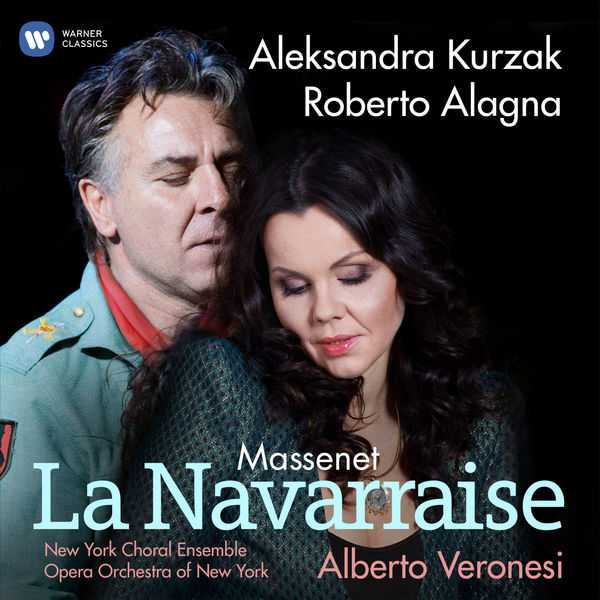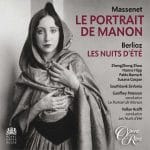

Composer: Jules Emile Frederic Massenet
Performer: Aleksandra Kurzak, Roberto Alagna, George Andguladze, Brian Kontes, Issachah Savage, Michael Anthony McGee, New York Choral Ensemble
Orchestra: Opera Orchestra of New York
Conductor: Alberto Veronesi
Format: FLAC (tracks)
Label: Warner
Catalogue: 9029560570
Release: 2018
Size: 419 MB
Recovery: +3%
Scan: yes
La Navarraise
01. Introduction
Act 1
02. “L’assaut a coûté cher, messieurs ! ” (Garrido)
03. “Capitaine, je vois que vous appartenez” (Anita, Ramon)
04. “Je ne pensais qu’à toi” (Anita, Araquil)
05. “Araquil ! Mon père !” (Anita, Araquil, Remigio)
06. “Depuis deux ans je t’aime !” (Anita, Araquil, Remigio)
07. “Ah ! Mariez donc son cœur avec mon cœur !” (Anita, Araquil, Remigio)
08. “Êtes-vous de la compagnie ?” (Anita, Araquil, Garrido, Remigio)
09. “Morts ! Les vieux compagnons, les meilleurs !” (Anita, Garrido, Ramon)
10. “Crénelons les maisons donnant sur la campagne” (Garrido, Chœur)
11. “Ô bien-aimée ! Pourquoi n’es-tu pas là ?” (Araquil)
12. “Anita, la Navarraise ?” (Araquil, Bustamente, Ramon, Chœur )
13. “J’ai trois maisons dans Madrid” (Bustamente, Chœur)
14. Nocturne
Act 2
15. “Alerte ! Alerte !” (Chœur)
16. “Mon argent ! Que dis-tu ?” (Anita, Garrido)
17. “Voici ma dot !” (Anita)
18. “Blessé, mourant, j’espère !” (Araquil)
19. “Mourir ! Mourir par moi !” (Anita, Araquil)
20. “Mon fils ! Père !” (Anita, Araquil, Remigio, Ramon)
21. “Merci, la bonne Vierge !” (Anita, Garrido)
La Navarraise is far from Massenet’s most famous opera. But can we even count it as an opera, considering that the composer saw it as a “lyric episode” and that it lasts only three quarters of an hour? Either way, it is indeed a work of the utmost maturity. It premiered in Covent Garden (sung in French) in 1894, featuring Emma Calvé, Pol Plançon and Albert Alvarez, the stars of their time. After a triumphant success in England, as well as in many European countries, La Navarraise disappeared from posters and was almost never be seen again. Italian Verismo and naturalism seem to have worn off on Massenet, as this is by far his “noisiest” score. The arrangement is filled with loud stage effects such as clapping hands, beating drums, clicking castanets, loud trumpets, clanging bells and shots from canons, shotguns and pistols. His music sometimes feels more like sound accompaniment rather than a lyrical passage. The musical content closely follows the theatrical action, which is very martial and turbulent indeed. Some, including the critic Willy, saw it as a kind of “Cavalleria española”, and quite rightly so. The gloomy action takes place in the Spanish Basque Country around the time of its creation, as Massenet mentions the Third Carlist War that took place just two decades earlier. It would be a bit like if a composer today were to create music based on the Yugoslav Wars… Alongside Roberto Alagna as the male lead, we find the Polish soprano Aleksandra Kurzak in the title role. This recording adds to the discography of the work which, although it is not Massenet’s greatest masterpiece, is clearly an underrated gem.



